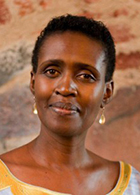Development
It is time to reverse an unfolding injustice
|
According to shocking new research by Oxfam, the world’s richest 1% will, on current trends, own more than half the world’s wealth by 2016. Wealthy individuals have sustained their vast riches particularly through a few important economic sectors, including finance, pharmaceuticals and health care. Billionaires with activities in these sectors increased their collective net worth by 47% between 2013 and 2014. Companies from these sectors spend millions of dollars every year on lobbying to create a policy environment that enhances their interests. Other than the obvious unfairness and absence of moral integrity of this phenomenon, should ordinary people of the world–the other 99%–care? In a word, yes, because it is corroding what lies at the heart of functioning societies in which people’s rights are safeguarded and opportunities for all must be encouraged, rather than thwarted. Governments and public institutions must be servants to their citizens, not to vested interests. Governments are obliged to protect human rights, including against commercial interests from emasculating those rights, and to account for adequate public finance that is vital to promote healthy, educated and productive societies. They should leave no one behind. We must build an economic and political system that addresses the factors that have led to today’s explosion in inequality, a system that values every citizen and favours policies that redistribute money and power from the few to the many. The year 2015 provides a rare opportunity for governments to forge a path to transformative change. Three important summit meetings–the UN Financing for Development Conference in Addis Ababa in July, the UN Post-2015 Summit in September, and the UN Climate Conference in Paris at the end of the year–carry a genuine potential that must not be squandered. Governments must first commit the highest representation possible to these summits. The Addis summit could set the tempo for the eventual success or failure of the other two. Political leaders must make pledges that significantly increase the domestic and international public finance needed to pay for the ambitious Sustainable Development Goals due to be agreed this September. These new goals must not only aim to raise the income of the poorest 40%, but to reduce the corresponding gap with the richest few at the top too. Meeting these objectives could require in excess of US$2 trillion. Three-quarters of this amount must come from new sources of public finance. Governments need to do far more to tap the revenue-raising potential from domestic resources such as taxation. Developing countries lose an estimated $100 billion every year to corporate tax dodging. By clamping down on this and ending harmful tax competition and financial secrecy, governments could go some way in freeing up this money. This is why Oxfam is calling for a new process where all governments can work together, and be held to account, for changing the rigged tax rules that are helping to pour oceans of money into multinational companies and rich-country coffers. Aid also remains a vital part of the financing equation. Donors need to recommit to the 0.7% target for international development. For example, the donor countries that make up the OECD Development Assistance Committee could raise an additional $250 billion a year by reaching the 0.7% UN target by 2025. There are other innovative ways of raising the cash–by accelerating concessional flows from south-south providers within the limits of capacity, taxing bunker fuels and financial transactions, and issuing IMF Special Drawing Rights. Private finance has an important role to play in international development but only if channelled under the right conditions. Too often we see private finance being mobilised in murky, unaccountable ways that can lead to environmental, social and human rights abuses. Donors and governments should prioritise financing projects that deliver the best outcomes for poor people and maximise progress on the Sustainable Development Goals. Corporate entities need to be far more tightly regulated for development finance to be routed through them. But it’s not just about money. Runaway climate change risks undermining all the progress we have made on human development, ruining decades of fantastic gains in the fight against poverty and hunger. Again, climate change is at root a problem of inequality. The richest on earth have driven excessive greenhouse gas emissions for decades, leaving the poorest to pay the devastating costs. Tackling inequality and climate change must go hand in hand. Climate negotiators must come to Paris in November-December with a clear mandate to forge a breakthrough. Climate finance is not charity but instead a legal obligation on the countries that are doing most to cause this crisis and that have the means to help. Let 2015 be the year when our leaders faced up to this unfolding injustice. References Byanyima, Winnie (2014), “It’s time to tax”, in OECD Yearbook 2014, see http://oe.cd/Y9 OECD work on Tax and Development |
Winnie Byanyima,
|
Related Documents

